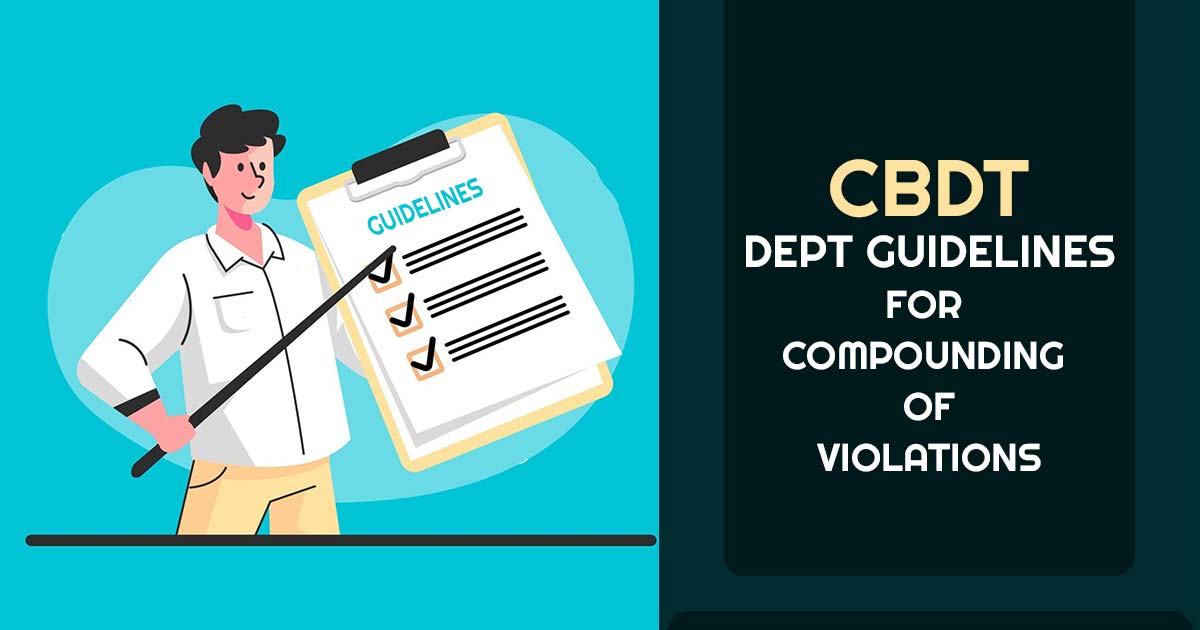
The Central Board of Direct Taxes (CBDT) furnishes the policies applicable for the compounding of violations under the Income Tax Act, of 1961.
Compounding of violations in the normal form does not count under the right. But the offences might be compounded via competent heads on the upon eligibility satisfaction conditions mentioned in the same guidelines, learning that as the conduct of the individual the nature and extent of the offence towards the facts and the case conditions.
A prosecution formed under the Indian Penal Code (IPC), if any, does not get compounded. However, section 321 of the Criminal Procedure Code, 1973, furnishes for the withdrawal of the same prosecution. In that case, the prosecution complaint furnished beneath the provision of the income tax act and the IPC would rely on identical conditions, and if the complaint under the Income Tax Act, 1961 is compounded, the withdrawal process of the complaint beneath the IPC might get executed via the Competent Authority.
The offences beneath Chapter-XXII of the Income Tax Act, 1961 are divided into two parts (Category ‘A’ and Category ‘B’) for the limited purpose of Compounding Offences. Category A offences would be the ones in which the offences are technical in nature which is due to the act of omission. While Class B comprises the non-technical offences attributed to the act of commission.
Read Also: 10 Serious Offences with Applicable Penalties Under Income Tax Act








